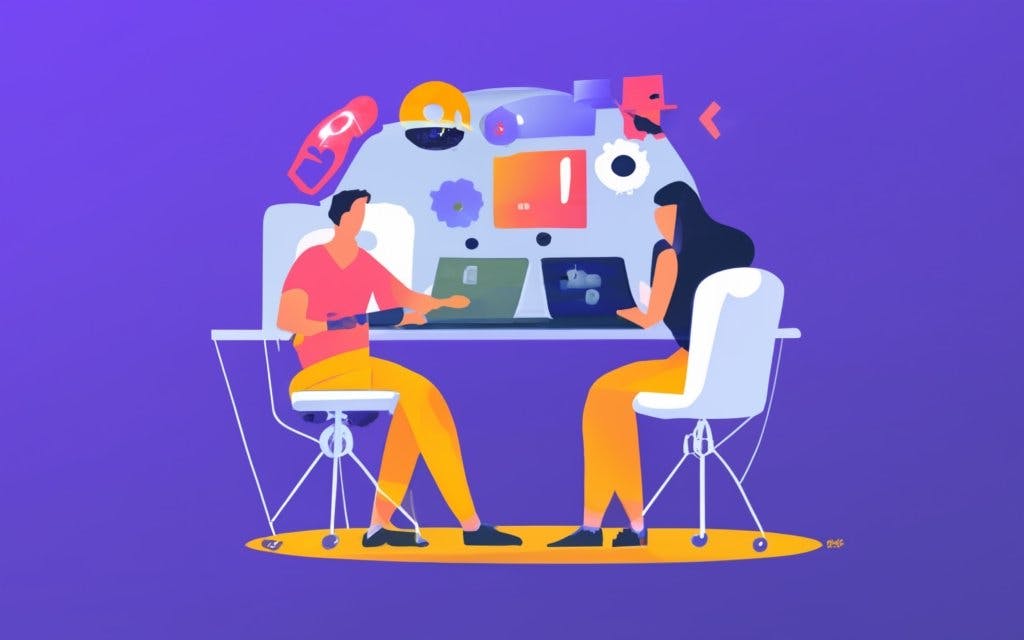Tradeable Game Assets on the Blockchain Are Superior to Centralized Systems



Why Tradeable Game Assets on the Blockchain Are Superior to Centralized Systems
The gaming industry has come a long way from the days of arcade machines and simple, single-player titles. With the advent of multiplayer online gaming and in-game purchases, the ecosystem has grown complex and incredibly profitable. But one frontier that's rewriting the rulebook is the integration of blockchain technology into gaming. In particular, putting tradeable game assets on the blockchain using web3 technology versus having them in a centralized system has compelling advantages. Let's break down why.
Ownership: Truly Yours, Forever
Centralized Systems
In a traditional gaming setup, all your purchased or earned items are stored on a centralized server controlled by the game developers. You don't really "own" these items; you're more like a leaseholder abiding by the rules and whims of the platform. Tomorrow, if the company decides to shut down the servers or change their terms of service, you could lose everything.
Blockchain Advantage
With assets on a blockchain, you hold genuine ownership. Each item can be represented as a unique, non-fungible token (NFT) that you can trade, sell, or keep in your digital wallet. The decentralized nature ensures that your ownership exists independent of the game or platform.
Interoperability: Beyond the Game's Boundary
Centralized Systems
Ever wish you could use your ultra-rare sword from one game in another title? In centralized systems, assets are locked within the game they originated from. The idea of cross-game compatibility is mostly a pipe dream.
Blockchain Advantage
Blockchain opens the door to interoperable game assets. Imagine a unified gaming metaverse where your unique armor or weapon could be used across multiple titles. Developers can build games that recognize assets from other games, creating a more interconnected and dynamic ecosystem.
Trade and Liquidity: Peer-to-Peer Freedom
Centralized Systems
Selling or trading assets in centralized gaming systems often involves going through a proprietary marketplace where the company takes a cut, or worse, it's outright forbidden. Some players resort to risky grey markets to trade assets.
Blockchain Advantage
Tradeable game assets on the blockchain can be securely and freely traded on various decentralized marketplaces. Peer-to-peer trading becomes seamless, and you keep a greater share of the profits from your trades.
Transparency and Trust: What You See Is What You Get
Centralized Systems
In centralized architectures, the odds of acquiring rare items or the inner mechanics of the game are often opaque. This can lead to mistrust among players, especially in "loot box" systems where chances of winning are unclear.
Blockchain Advantage
Blockchain's transparency ensures that all transactions and odds are publicly viewable. Smart contracts can even automate and verify fair trades, enforcing rules without the need for a middleman.
Innovation and Community Involvement
Centralized Systems
Centralized systems are inherently closed ecosystems where the developer has total control. Community involvement is limited to forums and social media comments, with little real impact on the game's development.
Blockchain Advantage
A blockchain-based system can incorporate governance tokens, allowing the player community to vote on major changes or updates in the game. This democratization leads to a game that's more attuned to its player base's desires, fostering innovation and long-term engagement.
Conclusion
While the transition to blockchain-based game assets comes with its challenges—like scalability and environmental concerns—the benefits of ownership, interoperability, and transparency are compelling arguments for the shift. As blockchain technology matures, it’s becoming increasingly clear that decentralized gaming assets are not just a passing trend, but the future of a more open, inclusive, and dynamic gaming ecosystem.
So if you're a game developer or an avid gamer, it might be time to join the web3 blockchain revolution. Your users will thank you, and who knows—you might just make history while you're at it.